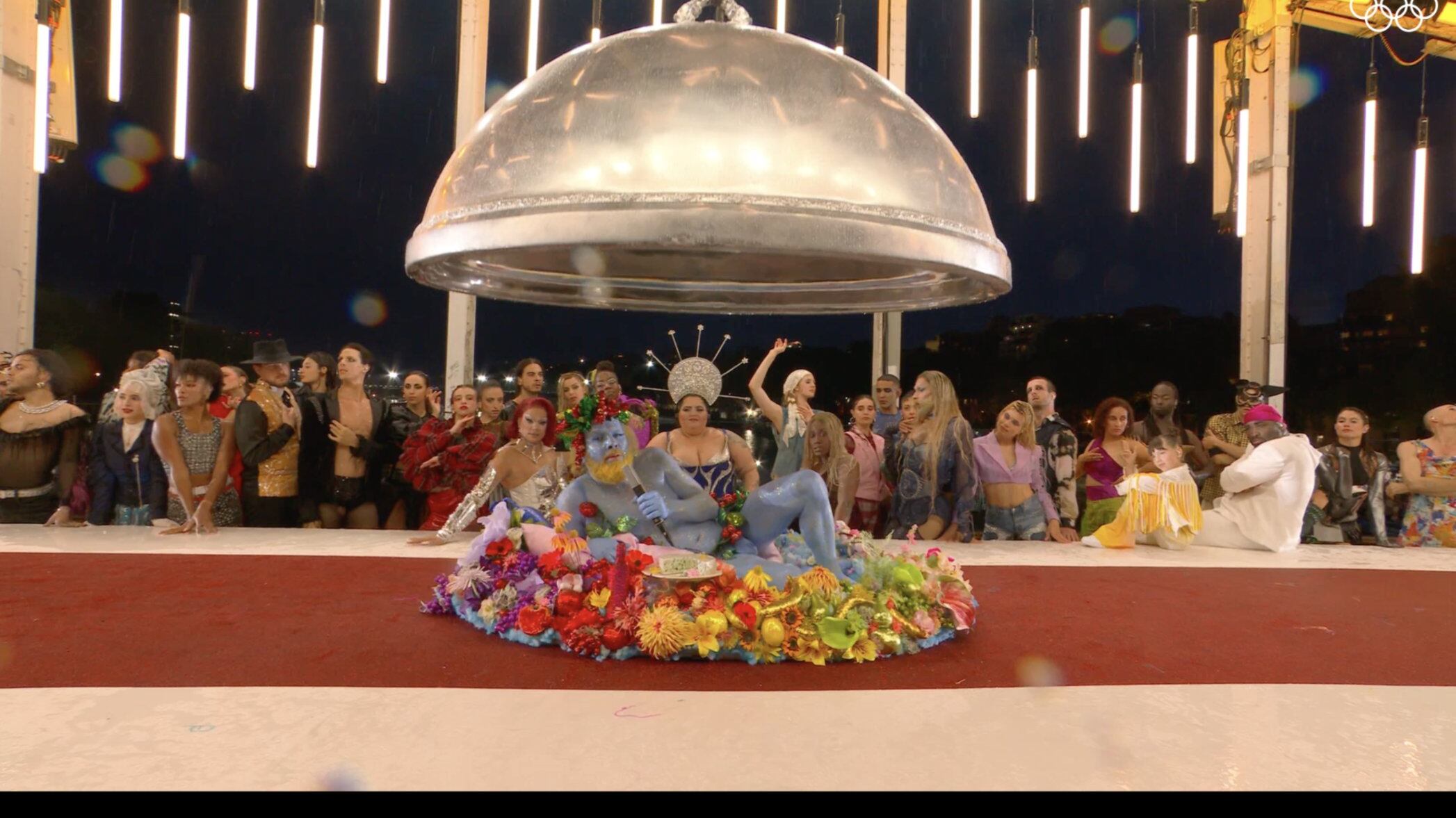The opening ceremony of the Paris 2024 Olympic Games was full of moments that generated controversies on social media, such as the artistic recreation of the popular painting by Leonardo da Vinci, “The Last Supper.”
In this performance, drag queens and dancers participated, lining up at a long table to pose similarly to Jesus Christ and his 12 apostles.
PUBLICIDAD
The particular image sparked many comments on social media from users and public figures. French MEP Marion Marechal reacted by saying: "Difficult to appreciate the strange paintings among decapitated Marie Antoinettes, a throuple (love triangle) kissing, drag queens, the humiliation of the Republican Guard forced to dance with Aya Nakamura, the ugliness of the costumes and choreographies."
Bishop Emmanuel Gobillard, spokesperson representing the Holy See for the Paris 2024 Olympic Games, told NBC News that the representation of the Last Supper left him "deeply hurt."
"The fact that our religion is ridiculed is common and we are used to blasphemy in France, but the context is not the same," he said. "In an event that brings together the whole or part of the population, I found the staging hurtful and out of place."
Apologies on behalf of the organization
Paris 2024 spokesperson, Anne Descamps, was asked about the protests during a press conference of the International Olympic Committee on Sunday.
"Clearly, there was never any intention to show disrespect to any religious group. On the contrary, I believe that with Thomas Jolly, we really tried to celebrate community tolerance," Descamps said. "Looking at the results of the surveys, we believe that this goal was achieved. If people have felt offended, of course, we are very, very sorry."
Jolly explained his intentions to The Associated Press after the ceremony.
"My wish is not to be subversive, or to mock or scandalize," Jolly said. "Above all, I wanted to send a message of love, a message of inclusion and not at all to divide."
“We wanted to include everyone, it’s as simple as that,” he said. “In France, we have freedom of creation, artistic freedom. In France, we are lucky to live in a free country. I didn’t have any specific message I wanted to convey. In France, we are a republic, we have the right to love whoever we want, we have the right not to be worshippers, we have many rights in France, and that’s what I wanted to convey.”
